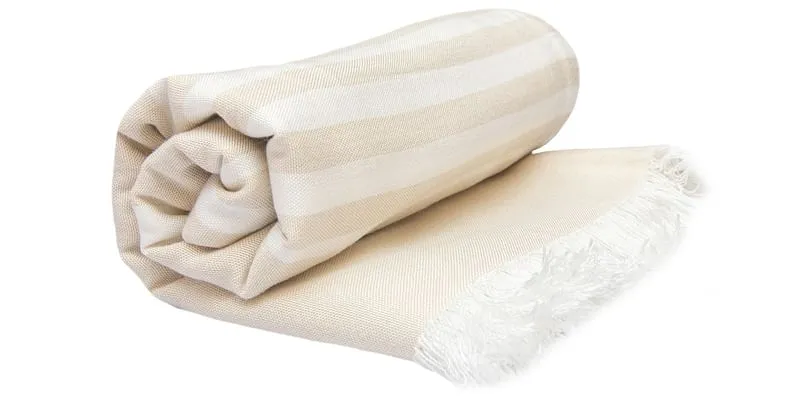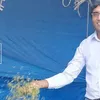Quitting corporate jobs to sell bamboo bath towels online, these 2 friends made Rs 7 Cr sales in last 12 months
In 2018, Ayush Agarwal and Nihar Gosalia started Mush Apparel, a sustainable textiles brand offering premium bamboo-based bath sets, bath towels, face towels, etc. Selling on Amazon, Flipkart, Tata Cliq, etc, the duo aims to close FY22 at Rs 12 crore.
Engineering batchmates and friends Ayush Agarwal and Nihar Gosalia loved to discuss business ideas with each other. Despite working corporate roles at Amazon and TCS respectively, the duo longed to start their own company.
Nihar, whose family ran a B2B textile business, realised bamboo fabric was a relatively unexplored concept in India. When he shared his finding, Ayush, who had seen ecommerce sellers grow at Amazon, immediately felt bamboo fabric would work well on online D2C channels.
“In 2018, we quit our jobs to start Mush Textile in Ahmedabad and bring to life our vision for products made from bamboo fabric. We sell bath towels, face towels, bath sets, and socks made from bamboo fabric on Amazon, Flipkart, Myntra, Tata Cliq, etc,” Ayush says.
“Last FY, we clocked Rs 4 crore revenue, and in the last 12 months, we recorded Rs 7 crore. This year, we aim to reach Rs 12 crore.”
Why bamboo?
Ayush and Nihar’s bath linens are made from bamboo viscose, rendering them absorbent, antibacterial, and anti-odour.
They claim their products largely use a 70-30 blend of bamboo and cotton, which is not common among larger fashion brands which prefer to use a smaller quantity of bamboo in their blends, according to Mush’s founders.
“The sustainable fashion industry does not always focus on blends. Some brands label their products as made from bamboo but in reality, the items may only be dyed with bamboo charcoal. Other brands may use a 40-60 blend of bamboo and cotton,” Ayush explains.
In the sustainable fashion industry, bamboo mixes are seen as alternatives to pure cotton or polyester blends as bamboo requires relatively little water and resources to grow, needs no pesticides, is highly biodegradable, and is found in abundance.

Bamboo towels by Mush
The initial days
Convinced that bamboo was the way forward, the two friends started Mush in Ayush’s father’s office.
“My father is a stock broker, and he offered us some space to launch our business. In those days, we paid him Rs 25,000 per month as rent. He always told us that if we occupied an office for free, we’d never realise or understand that rent is an important cost of doing business,” Ayush says.
He also claims Mush was started with Rs 5 lakh savings invested by the founders. They reinvested profits and have not injected fresh capital into the brand.
With their makeshift office set up, the duo decided they’d start making towels using bamboo. Nihar’s family business used woven fabric machines to make textiles, and these could not be utilised for making towels.
“We wanted to focus on creating a high quality product, and so we had to control the entire flow of manufacturing to ensure there were no compromises. We procured yarn from local suppliers, had it dyed, and sent the raw material to towel manufacturing units with instructions on how to make towels according to the blend we wanted,” Nihar explains.
In those days, Ayush and Nihar used to fill their cars with yarn and drive down to local factories to deliver it, coming back later to pick up the final product.
This way, the founders initially got 110 pieces of bath towels made, listed the brand on Amazon, and thought the stock would last four to five months.
An attempt at offline sales
Nihar also approached an offline towel store near their office to see if he could place Mush’s towels on the store’s shelf.
“The store liked our product, but they refused since they only purchased stock from their distributors. So we took their distributor’s contact number and arranged a meeting,” Ayush says.
Upon reaching the distributor's office, the founders were asked how many pieces of towels they had in stock. “We told the distributor we had enough, and then he said he wanted to buy our entire stock in one shot. We were completely taken aback, but we couldn’t go through with it since he wanted to purchase our stock on credit,” he says.
Ayush and Nihar then struck a deal to sell only a few towel pieces at premium stores in the distributor’s network. This experience taught the entrepreneurs that even though offline distributors wanted their products, most deals took place on credit – a deterrent for them.

Lightweight Turkish bamboo bath towel by Mush
Online-centric business model
“We began focusing on Amazon sales and positioning our product as a premium buy - since people only buy them once every two to three years and do not frequently replace them,” Ayush says.
“In the online premium towel market, there are players selling regular cotton towels in the range of Rs 500 to Rs 1,000. In offline spaces, these towels are often sold at Rs 2,000. They enjoyed traditional margins as there were few competitors. We purchased a few of them to compare to our towels, and we realised our towels were of much better quality since we used bamboo.”
The entrepreneurs then decided to price Mush’s bamboo fabric bath towels and sets as a premium offering in three price ranges: Rs 1,899, Rs 1,499, and Rs 1,300.
The 110 bath towels, which they thought would last four to five months, sold out in 30 days. This response strengthened their belief in bamboo-based textiles and apparels, and influenced them to add more SKUs such as hand towels, face towels, hair towels, and more.
Although 95 percent of sales comes from online channels, Ayush and Nihar are not ignoring offline sales. They have tied up with distributors in Gujarat, Tamil Nadu, and Maharashtra as well as UAE, Kuwait, and the UK, and are growing their offline sales steadily.
Current challenges
Mush is still far from focusing on T-shirts and undergarments as these products generally require polyester in the blends and are difficult to make without it. At the moment, the brand only makes bamboo-based T-shirts on order basis and does not retail them.
Ayush and Nihar face a hurdle of reducing lead times for their range of towels. “We have a challenge since our product is niche and we are very specific about controlling the manufacturing process. Our lead time is currently between three to four months and this leads to planning challenges. We run out of stock or raw materials due to this,” Nihar explains.
These difficulties were compounded due to the COVID-19 pandemic, which adversely affected Mush’s procurement of raw materials.
“We are out of stock in 70 percent of our products and are still not at 100 percent manufacturing capacity. Although we had some stock when the lockdowns were put in place, we ran out once they were lifted,” Ayush says.

Mush Founders Ayush Agarwal (left) and Nihar Gosalia
Way forward in the sustainable fashion market
The global ethical fashion market is expected to grow from $4.67 billion in 2020 to $5.84 billion in 2021 at a compound annual growth rate (CAGR) of 25.1 percent, according to a ResearchAndMarkets report.
This growth is mainly due to large and small fashion brands alike resuming their operations and recovering from the COVID-19 impact as they also look to invest further in sustainable, ethical fashion.
In keeping with this growth, the Mush founders hope to strike a better balance between their sales and procurement to improve their lead times, and aim to venture into new areas such as sustainable baby apparel, bedsheets, blankets, and quilts.
Ayush says, “When we launched in 2018, there was nobody else making towels like ours. Now, there are a few players trying to do the same thing. We expect to see a lot of competition coming up. The sustainable textiles and fashion industry will see a lot of new players, and we intend to innovate constantly and retain our first-mover advantage.”
Edited by Teja Lele










